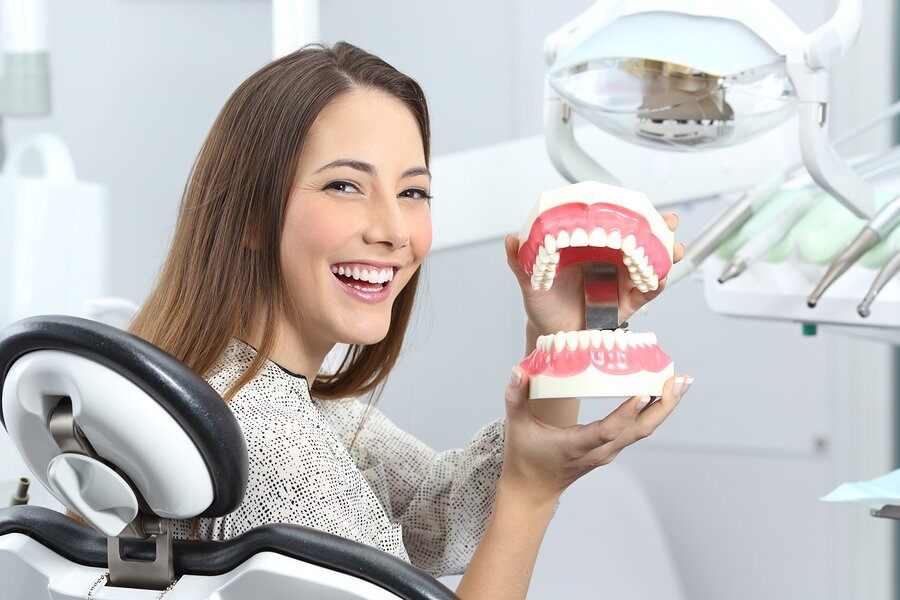Denture Care Guide: Tips for Maintenance & Cleaning

Summarize with AI
Just like natural teeth, dentures can accumulate bacteria, tartar and plaque. Unlike actual teeth, however, dentures lack protective enamel that helps to prevent scratches and abrasions. To keep your dentures clean and free of damage, learn the basics of proper denture care.
How to Remove Plaque from Dentures
Unfortunately, traditional toothpastes, hot water and household cleaners are not appropriate for cleaning dentures. The best way to eliminate plaque is to soak your dentures overnight in a commercial cleansing solution, specifically developed for dentures. You should also continue to brush your gums, tongue and the roof of your mouth, using normal toothpaste.
How to Clean Dentures with Peroxide?
If you want to save a few dollars, you can clean your dentures using a peroxide solution. Place two teaspoons of baking soda into a glass and add a few drops of water. Next, place your dentures inside the glass and add enough hydrogen peroxide to submerge them completely. Let the dentures soak overnight, and then rinse them before use.
How to Clean Dentures with Vinegar?
Vinegar can also be a simple, effective solution for cleaning and disinfecting dentures. Just be sure to dilute the vinegar by 50 percent with water. You can soak your dentures in the solution for 30 minutes or overnight. However long you decide to soak them, make sure to thoroughly rinse your dentures before inserting them into your mouth.
What Is the Best Way to Whiten Dentures?
There are a number of quality effervescent whitening solutions, specifically developed to clean denture stains. On the other hand, you should avoid using any abrasive cleaning materials, stiff-bristled brushes, hard whitening toothpastes, hot water or bleach-containing products, since these can damage your dentures.
What Is the Best Toothpaste for Dentures?
Traditional toothpastes should be avoided in favor of commercial denture creams, pastes or gels. Use the pastes according to the manufacturer’s instructions, and always make sure to remove your dentures before applying any type of denture cleanser.
How to Remove Dentures
If you take care of your dentures, they will last from five to seven years. While it may sound like a simple process, proper removal is a key part of caring for your dentures. To prevent accidental damage, follow these steps:
- Fill your sink with water to prevent your dentures from breaking in case you drop them.
- Take out your top dentures by placing your thumb against the front of your teeth and press outward and upward toward your nose.
- Take out your lower denture by gently pulling on it, while slowly rocking it side to side.
What Are the Best Denture Adhesives?
Whether it's a strip, wafer, powder or cream, the best denture adherents should firmly hold your dentures in place to keep food from sticking between the device and your gums. There are a number of commercial adhesives available, and it's a good idea to try a few out before settling on any one. Just be sure to follow the manufacturer’s instructions and check to see if your dentures are completely clean before applying any type of adhesive.
Dentures Repair
If your dentures become loose or damaged, it's important to seek professional repair. Even the best denture adhesives are not a remedy for poorly-fitting dentures, which may need to be replaced or realigned to prevent oral sores from developing. You can reduce the risk of damaging your dentures by soaking them overnight in lukewarm water. That said, you should never soak your dentures in hot water, since this can lead to warping. If you notice that your dentures don’t fit as well as they used to, visit your local dentist for an evaluation.

.png)
